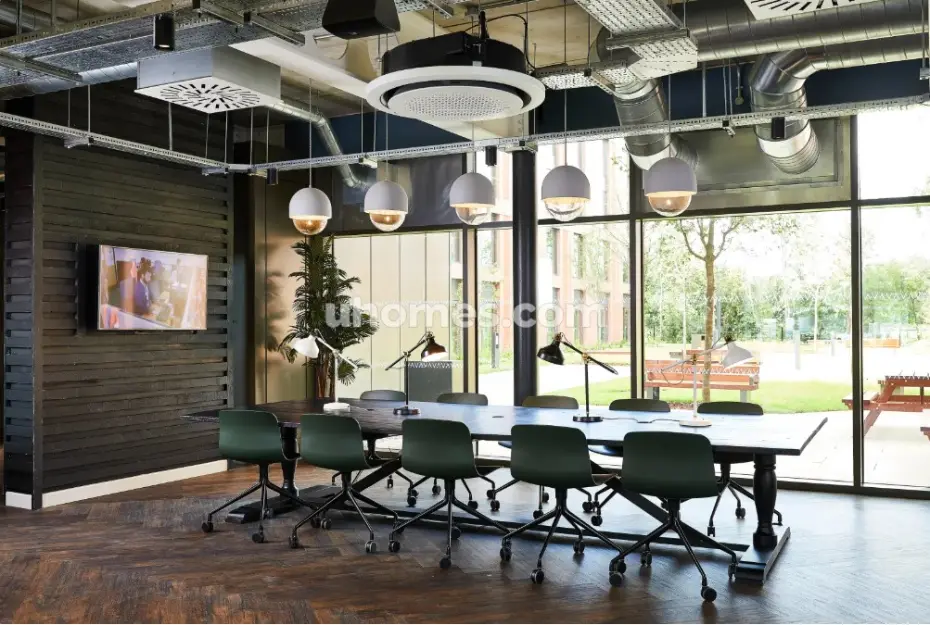Birmingham City University (BCU) has steadily carved out a reputation as a dynamic, career-focused institution in the heart of the UK’s second-largest city. But with so many universities competing for students’ attention, is BCU a good choice? This deep dive explores its academic strengths, student support, facilities, Birmingham City University accommodation, graduate outcomes, and more—helping you decide if BCU aligns with your goals.
1. Academic Reputation: Industry-Focused Excellence
BCU isn’t a Russell Group university, but it shines in practical, industry-aligned education. Ranked 1st in the UK for Film Production and 3rd for Nursing), BCU prioritizes courses that prepare students for real-world careers. Its emphasis on vocational training is reflected in partnerships with giants like the BBC, Jaguar Land Rover, and Microsoft.
- Creative Industries: BCU’s Royal Birmingham Conservatoire and School of Games, Film, and Animation offer state-of-the-art facilities, including Europe’s largest static green screen and a Dolby Atmos cinema.
- Health and Life Sciences: The university’s simulation hospitals and forensic labs provide hands-on training, contributing to its 94% employability rate for nursing graduates.
- Business and Law: BCU’s Law Clinic gives students real case experience, while its Business School holds AACSB accreditation—a mark earned by only 6% of global business schools.
2. Teaching Quality: Supportive and Innovative
BCU’s teaching staff often have industry backgrounds, bridging theory and practice. National Student Survey (NSS) highlighted:
- 86% satisfaction with teaching quality in design courses.
- 82% approval for academic support in engineering.
The university also invests in innovative methods. For example, its STEAMhouse initiative—a £70 million innovation hub—connects students from science, technology, engineering, arts, and math to collaborate on live projects with businesses.
3. Facilities: Cutting-Edge Resources
BCU’s campus investments ensure students access industry-standard tools:
- Parkside Building: A £62 million media complex with TV studios, editing suites, and a newsroom used by ITV and Sky.
- Curzon Building: Home to a Bloomberg Trading Room for finance students.
Royal Birmingham Conservatoire: A £57 million music school with 9,000 sq. ft of performance spaces.
The university also recently opened a £5 million AI and Robotics Lab, underscoring its commitment to emerging technologies.
4. Birmingham City University Accommodation: Affordable Private Options
While BCU doesn’t own traditional dormitories, it partners with private providers to offer BCU accommodation tailored to student budgets. Options like The Printworks and Jennings Court provide en-suite rooms, communal spaces, and on-site gyms, with rents starting at £120–£170/week. These residences are strategically located near campuses and transport links, with some offering all-inclusive bills.
For those seeking cheaper alternatives, uhomes.com offers private student accommodation in Birmingham's most popular student areas, such as Digbeth, Selly Oak, and Edgbaston, starting from £80 per week. All utilities and Wi-Fi are included.

5. Student Support: Beyond the Classroom
BCU’s holistic approach to student well-being includes:
- Mental Health Services: Free counseling and a 24/7 mental health app.
- Academic Support: Workshops on essay writing, coding, and exam prep.
- Financial Aid: Hardship funds and scholarships for low-income students.
BCU launched the “Success Coaches” program from 2023, pairing students with mentors to navigate academic and personal challenges.
6. Graduate Outcomes: Launching Careers
BCU’s focus on employability pays off:
- 94% of graduates secure jobs or further study within 15 months.
- Top employers include the NHS, BBC, and HSBC.
- Salaries: Average starting pay for BCU engineering graduates is £28,000, rising to £45,000+ in tech roles.
The university’s “Employability Award” program lets students earn credits through internships, volunteering, or part-time work—a standout feature for CV-building.
7. Student Life: Vibrant and Inclusive
BCU’s diverse community—over 30,000 students from 100+ countries—creates a lively atmosphere. Highlights include:
- Societies: 100+ clubs, from Afro-Caribbean to eSports.
- Location: Campuses are minutes from Birmingham’s Bullring, Digbeth arts quarter, and the iconic Library of Birmingham.
- Events: Free gigs at Eastside Jazz Club and BCU’s annual “Freshers’ Fest” with headliners like Rudimental.
The city itself is a draw. Birmingham’s cost of living is 25% cheaper than London, with £3 cinema tickets, £5 student meals at YO! Sushi, and free entry to museums.
8. Criticisms: Areas to Consider
No university is perfect, and BCU has faced critiques:
- Research Output: Unlike Russell Group peers, BCU focuses less on theoretical research, which may deter PhD-bound students.
- Campus Spread: Its 10 campuses scattered across the city can mean longer commutes.
- Rankings: BCU ranks 80th in the UK, though this reflects its vocational ethos rather than academic prestige.
The Verdict: Who Should Choose BCU?
BCU is ideal for students who:
- Want hands-on, career-ready skills.
- Plan to enter creative, tech, or healthcare industries.
- Prefer affordable living in a vibrant city.
However, those seeking a traditional “campus feel” or Ivy League-style prestige might prefer older universities.
Final Thoughts
Birmingham City University excels in marrying education with employability. Its industry partnerships, modern facilities, and focus on student support make it a compelling choice—especially for pragmatic learners eager to jumpstart their careers. Coupled with the affordability of student accommodation and tailored BCU accommodation options, BCU offers a balanced, future-proof student experience. While it may not have the centuries-old legacy of Oxford or Cambridge, BCU proves that in today’s fast-paced world, practicality and innovation matter just as much as tradition. In short, if you’re looking for a university that prepares you not just for exams, but for life, BCU deserves your consideration.